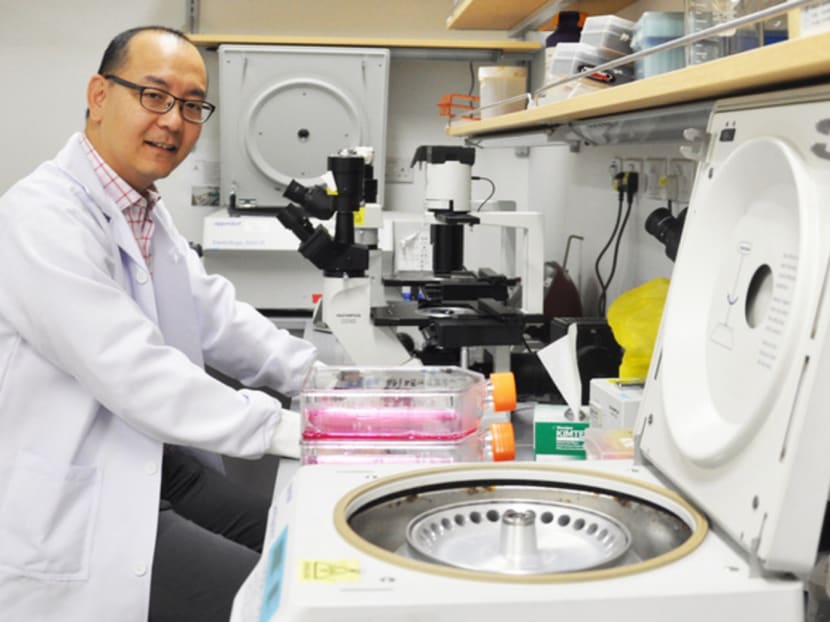NUS researchers find new promise in old cancer drug
SINGAPORE — A decade-old cancer drug that was deemed too weak for use has drawn interest from the scientific community in recent years after the discovery of a more potent version of it.

A study led by Professor Chng Wee Joo from the Cancer Science Institute of Singapore has shown the efficacy of a small molecule drug, PRIMA-1met, in inhibiting the growth of colorectal cancer cells. Photo: NUS
SINGAPORE — A decade-old cancer drug that was deemed too weak for use has drawn interest from the scientific community in recent years after the discovery of a more potent version of it.
And while scientists in Europe and the United States are focused on testing the drug for blood cancer and prostate cancer treatments, researchers here are suggesting that the PRIMA-1met drug could be used to treat colorectal cancer — the most common cancer in Singapore. The team at the National University of Singapore (NUS) has found the drug to be effective in inhibiting the growth of colorectal cancer cells.
When administered, the researchers found that the drug increases the quantity of a protein called Noxa in the patient’s body, which in turn helps to reactivate the cell-killing processes of a mutated p53 gene. This will return the gene to its active form, which naturally suppresses cancerous growth. The drug could therefore help in containing malignant tumour growth and render chemotherapy treatment more effective.
“In a way, the cancer cells self-implode because the exposure to the drug activates the mechanism in the cancer cell that actually kill the cells on its own,” said Professor Chng Wee Joo, who led the research. The NUS study, which was supported by grants from the National Research Foundation Singapore, Ministry of Education and the National Medical Research Council, was published in the journal Oncotarget.
Breakthroughs in the field of colorectal cancer treatment have been sparse in Europe and the US, where screening programmes have better take-up rates, but Dr Chng noted that the problem is a significant one in Singapore, where patients are often diagnosed late.
Dr Chng, who is also the deputy director and senior principal investigator at Cancer Science Institute of Singapore, said that 50 per cent of patients who die from colorectal cancer in Singapore have this p53 mutation, which is usually found in later-stage patients.
Among newly-diagnosed patients here, 20 to 30 per cent have the p53 mutation, he added. Others have a higher likelihood of developing p53 mutation when their condition worsens.
In its next steps, the NUS team plans to test if the combination of PRIMA-1met with anti-cancer drugs such as Fluorouracil and Oxaliplatin, commonly used for the treatment of colorectal cancer, will optimise the results of chemotherapy. The team is also reaching out to pharmaceutical companies to conduct a clinical trial. Finding out the drug’s appropriate dosage range and potential side effects are main concerns at this stage.
From 2010 to 2014, there were 9,324 new colorectal cancer cases in Singapore, statistics from the Singapore Cancer Registry show. The disease had the second-highest cancer mortality rate among men and third-highest among women. There were 3,726 colorectal cancer deaths during this period. Deaths from colorectal cancer have seen a steady decrease since 1999 due to advances in treatment, such as adjuvant therapy that combines chemotherapy, radiotherapy, and total mesorectal excision.








